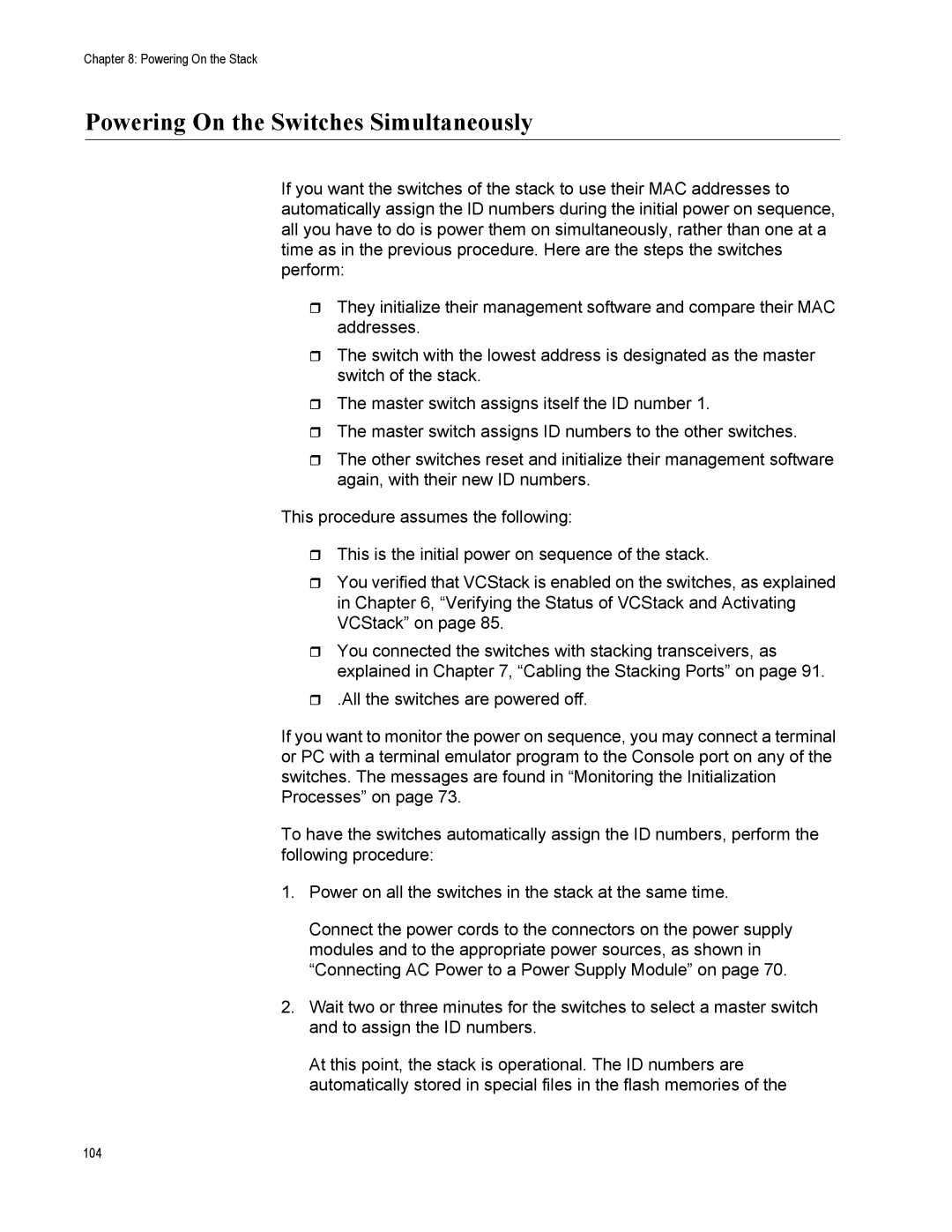Chapter 8: Powering On the Stack
Powering On the Switches Simultaneously
If you want the switches of the stack to use their MAC addresses to automatically assign the ID numbers during the initial power on sequence, all you have to do is power them on simultaneously, rather than one at a time as in the previous procedure. Here are the steps the switches perform:
They initialize their management software and compare their MAC addresses.
The switch with the lowest address is designated as the master switch of the stack.
The master switch assigns itself the ID number 1.
The master switch assigns ID numbers to the other switches.
The other switches reset and initialize their management software again, with their new ID numbers.
This procedure assumes the following:
This is the initial power on sequence of the stack.
You verified that VCStack is enabled on the switches, as explained in Chapter 6, “Verifying the Status of VCStack and Activating VCStack” on page 85.
You connected the switches with stacking transceivers, as explained in Chapter 7, “Cabling the Stacking Ports” on page 91.
.All the switches are powered off.
If you want to monitor the power on sequence, you may connect a terminal or PC with a terminal emulator program to the Console port on any of the switches. The messages are found in “Monitoring the Initialization Processes” on page 73.
To have the switches automatically assign the ID numbers, perform the following procedure:
1.Power on all the switches in the stack at the same time.
Connect the power cords to the connectors on the power supply modules and to the appropriate power sources, as shown in “Connecting AC Power to a Power Supply Module” on page 70.
2.Wait two or three minutes for the switches to select a master switch and to assign the ID numbers.
At this point, the stack is operational. The ID numbers are automatically stored in special files in the flash memories of the
104
